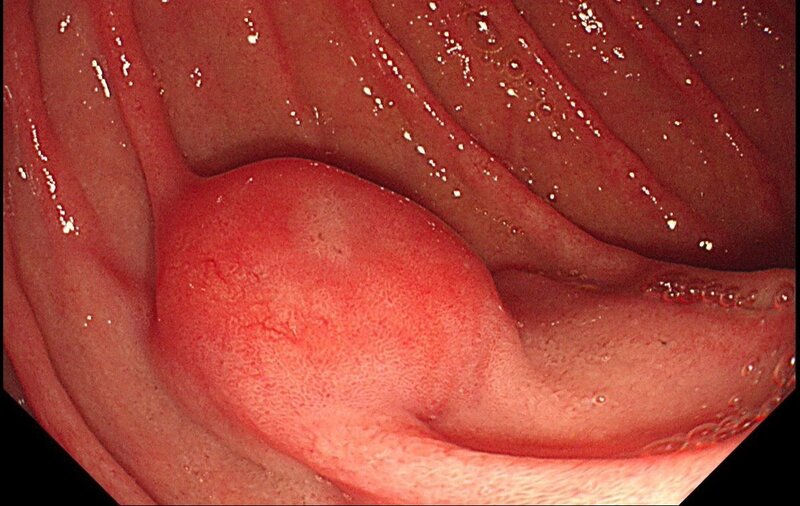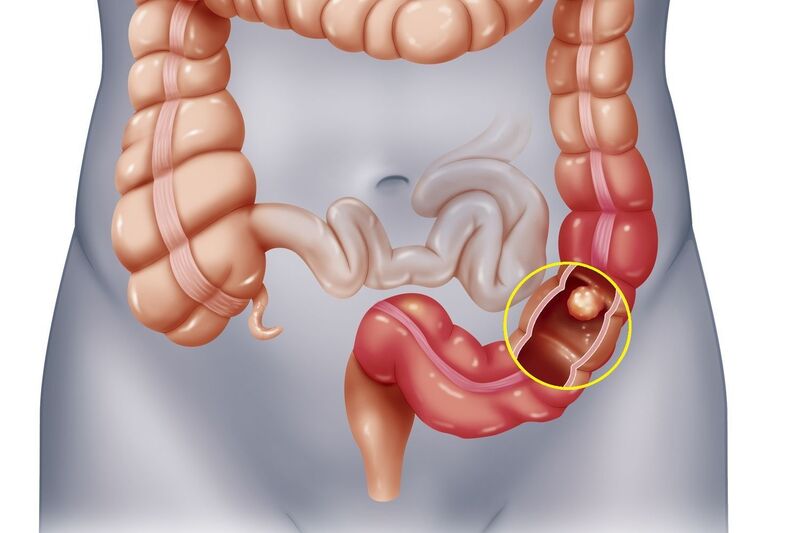1. How to recognize the condition of bloody stools
Blood in the stool can be easily identified with bright red or bright pink blood mixed in the stool. Maybe the amount of blood is not much, so it is difficult to confirm, but still see the characteristic color on the paper. But there are cases that are more difficult to detect than black blood mixed in the stool, which is caused by previous bleeding and long storage in the digestive tract, causing them to oxidize and lose their characteristic red color.
This color of blood in the stool also helps the doctor better predict the cause. If this condition does not happen often, but only when it comes to constipation, bleeding accompanied by burning pain due to mucosal damage, it is usually not too dangerous and goes away on its own after a few days. However, if persistent bleeding is accompanied by other health symptoms, it should be noted that the cause may be a more dangerous disease.
2. Gastroenterologist answers 9 main causes of bloody stools
Below are the most common medical conditions and health problems that cause bloody stools.

Gastrointestinal fistula is also one of the causes of bloody stools
2.1. Gastrointestinal fistula
Because an infection or other cause causes fistulas to appear between the anus and the skin or the rectum and anus, digestive juices, pus, and blood can leak out and mix with the stool. Patients will see frequent bloody stools with varying amounts.
These cases require diagnosis and surgery to treat, along with the use of antibiotics to prevent infection.
2.2. Hemorrhoids
Hemorrhoids are a fairly common disease today, also a common cause of blood in the stool. Causes of hemorrhoids are also quite diverse such as: Eating less fiber, lazy to drink water, prolonged stress, straining when going to the toilet, chronic constipation, etc. Hemorrhoids are more likely to appear in pregnant women. or the patient needs to take the drug for a long time.
To prevent and control hemorrhoids, patients need to pay more attention to healthy eating and living habits. Along with that, it is necessary to check the diagnosis and take the medication prescribed by the doctor. If bleeding from hemorrhoids doesn't go away, your doctor may need to surgically remove the hemorrhoid.
2.3. Colorectal polyps
Polyps due to excessive proliferation of the lining of the colon formed, these are tumors that protrude into the lumen of the colon. If polyps appear in the lining of the colon, it can cause irritation, inflammation, and bleeding.
2.4. Rectal prolapse
Rectal prolapse is different from hemorrhoids but often causes confusion because the symptoms are quite similar. The identifying feature is that the disease often appears in the elderly, causing bloody stools accompanied by lower abdominal pain. Rectal prolapse requires early treatment to avoid complications.
2.5. Diverticulitis
Diverticulosis is an abnormality that occurs when the colon wall is prolapsed, it usually occurs in the sigmoid colon. The cause of this condition is currently unknown, but it is closely related to a diet low in fiber, low in vegetables, ...
During the digestive process, this diverticulum can be rubbed, leading to bleeding, blood will pass out with the stool. Bleeding can be continuous or intermittent, and when the diverticulum is not removed, the risk of bleeding and infection persists.
2.6. Gastroenteritis
Most causes of gastroenteritis are bacterial, in some cases viral. Not only causing blood in the stool, patients with gastroenteritis often have a lot of mucus in their stools. To treat it, the patient needs to get enough fluids, and take antiviral drugs or antibiotics depending on whether the cause is a virus or bacteria.
2.7. Sexually transmitted diseases
Having unprotected sex puts you at high risk of many dangerous diseases, including many bacteria that cause proctitis, anal inflammation that causes bleeding. Most sexually transmitted diseases are difficult to completely treat, have a high risk of infection, and require persistent diagnosis and treatment to control symptoms.
2.8. Inflammation of the colon
The colon is the last part of the digestive tract, the part closest to the anus, called the rectum, is also the most prone to inflammation and bleeding. The causes of colitis are very diverse such as: Crohn's disease, bacterial infection, parasitic infection, irritable bowel syndrome, constipation, anal intercourse, etc.
Colitis is difficult to completely treat, easy to recur, so patients need to be treated patiently and at the same time limit the causative factors. Symptoms of bleeding from colitis can be treated with medication and improved with healthy eating and living habits.
2.9. Colon cancer
Blood in the stool can be a symptom of colon cancer, when abnormal cells grow here and form a tumor. Inflammation, irritation, and damage to the lining of the colon can easily lead to bleeding. Many colon cancers develop from polyps.

Be careful when passing blood, it is a sign of colon cancer
Care should be taken if blood in the stool is accompanied by abnormal signs such as abdominal pain, frequent constipation, change in bowel habits, painful urination, urinary incontinence, nausea, vomiting, fatigue. , sudden weight loss, etc. Early detection and treatment help colon cancer patients have a better prognosis.
There are many causes of bloody stools, to determine the exact need based on other symptoms as well as diagnostic results. When experiencing this abnormal symptom, the patient should actively seek medical attention. Once the cause is identified, treatment will be more effective.